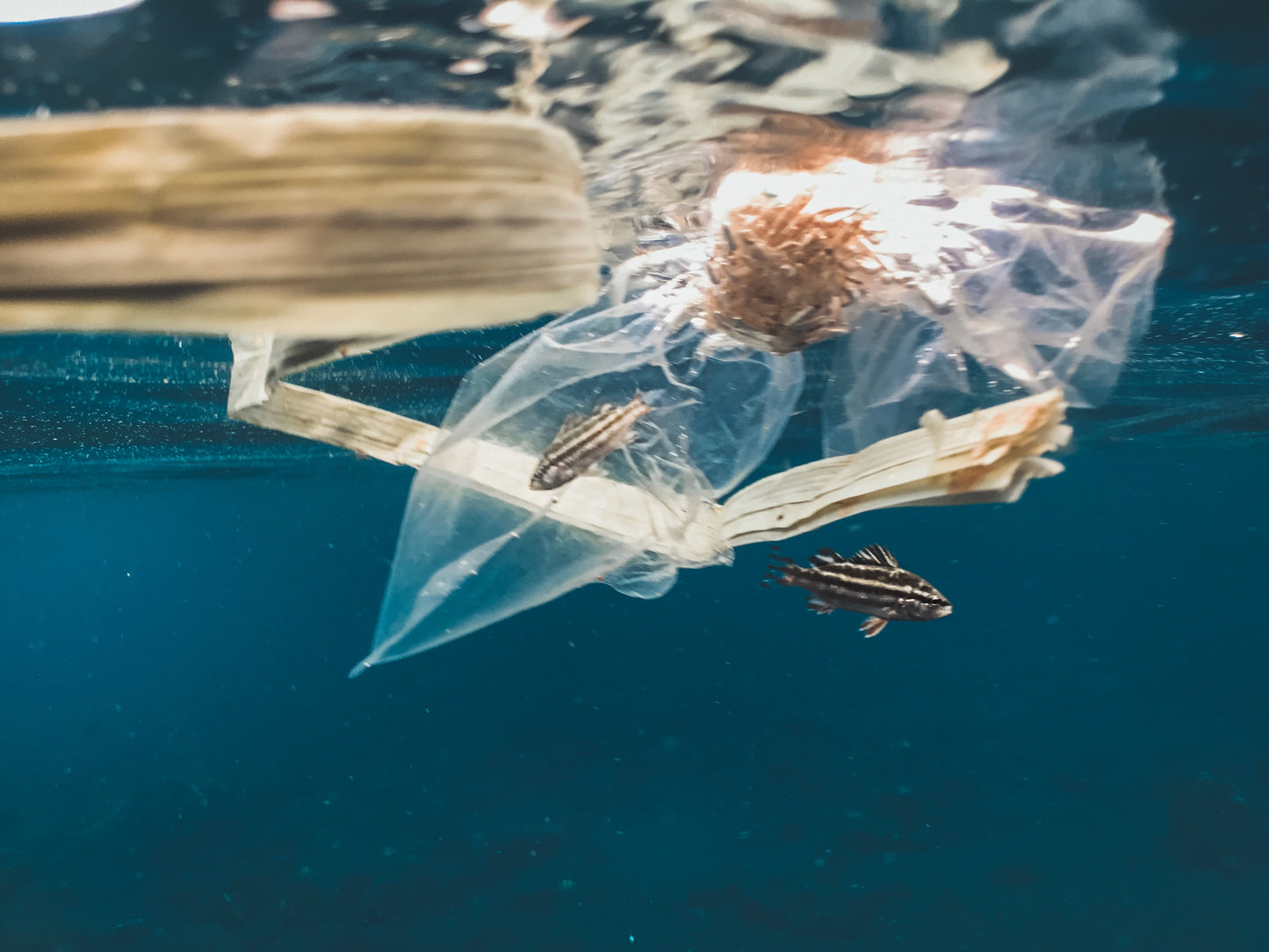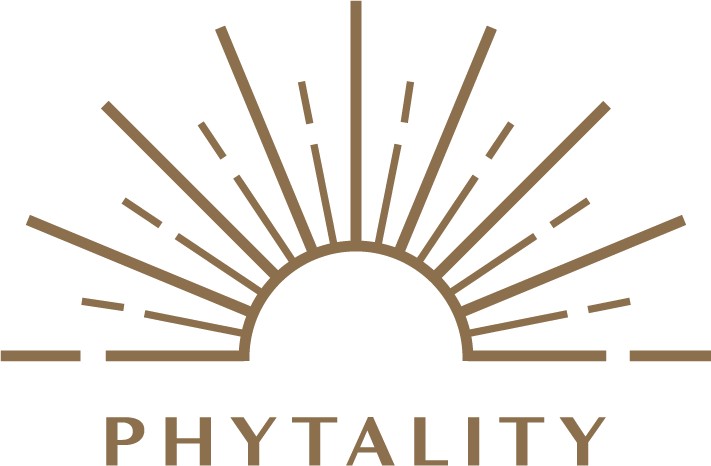
Many people used to fish-based sources of Omega 3 are now seeking a sustainable alternative. Movies like Seaspiracy have exposed the terrible truths about the fishing industry, and the toxicity of foods once considered the highest form of nutrition.
As the documentary noted, over 50% of the plastic in the ocean comes from discarded fishing nets. And up to 90% of the world's fish populations may disappear by the year 2048.
By choosing sustainable sources of Omega 3, we can help protect marine habitats for future generations.
This article will explore the benefits of sustainable Omega 3 sources and highlight some of the best plant-based options available.
Is it Possible to Get Sustainable Omega 3 from Fish?
- Anchovies
- Sardines
- Herring
- Mackerel
- Salmon (from certified sustainable farms)
- Trout (from certified sustainable farms)
These fish are all low on the food chain, meaning they do not consume large amounts of other fish. They are also relatively abundant, meaning they can be caught or farmed without depleting populations.
That said, it is no longer possible to get completely contaminant-free omega-3 from ocean fish. All fish contain some level of contaminants, such as mercury, PCBs, and dioxins.
Farmed salmon can generally have a lower environmental impact than wild salmon, as it requires less fuel and energy to produce and can be farmed in closed containment systems to prevent pollution and escape.
However, there are major concerns about the potential for disease outbreaks and the use of antibiotics and other chemicals in fish farming operations.
In some cases, farmed salmon can also escape and breed with wild populations, which can negatively affect the genetic diversity and health of wild salmon.
Overall, whether farmed salmon is a genuinely sustainable alternative depends on the specific farming practices being used.
Overall, eating fish is a very ethically tricky area whether it's due to sustainability or toxicity, with no easy answers.
How Do Plant-Based Omega 3 Sources Compare?
Plant-based sources of Omega 3, such as chia seeds, flaxseed, and walnuts, are all healthy alternatives to traditional fish-based sources of Omega 3.
However, it's important to note that these plant-based sources contain alpha-linolenic acid (ALA), which is a type of Omega 3 that the body must convert into the long-chain fatty acids EPA and DHA, the same types found in fish. This conversion process is inefficient, and the amount of EPA and DHA produced from ALA is relatively small.
While plant-based Omega 3 sources are still beneficial for overall health, none can compare to the short-chain fatty acids found in fish. However, there is one direct vegetarian counterpart to Omega 3 from fish, and that is algae.
Algae-based Omega 3 supplements provide the same long-chain fatty acids found in fish, making them an ideal alternative for vegetarians and vegans who want to ensure they are getting sufficient Omega 3 in their diets.
Algae is the original source of Omega 3, as fish acquire their Omega 3 by eating algae.
By extracting Omega 3 directly from algae, we can bypass the need for consuming fish and reduce the negative impact of overfishing and pollution of the marine environment.
What are the Best Sustainable, Eco-Friendly Ways to Get Omega in Your Diet?
The best sustainable, eco-friendly way to get omega-3s into your diet are via an algae oil supplement that is produced in a responsible manner.
Food-wise, Consume plant-based sources of omega-3s. These include chia seeds, flaxseeds, hemp seeds, walnuts.
Choose fish that are low on the food chain and that are caught or farmed using sustainable methods. Some good choices for sustainable omega-3-rich fish include anchovies, sardines, herring, mackerel, salmon (from certified sustainable farms), and trout (from certified sustainable farms).
Look for the Marine Stewardship Council (MSC) or Best Aquaculture Practices (BAP) certifications when choosing fish. These labels indicate that the fish was caught or farmed using sustainable methods.
Limit your intake of fish to 2-3 servings per week. This will help to reduce your exposure to contaminants.
|
Source |
Nutrition |
Sustainability |
|
Clean Omega (algae) |
High in DHA, the same long-chain fatty acids found in fish-based sources. Vegan and allergen-free. |
Sustainable and environmentally friendly, as it is derived directly from algae grown inland without the need for overfishing. |
|
Wild Alaskan Salmon |
High in EPA and DHA, but may contain high levels of mercury and other toxins. Not vegan. |
Sustainably fished populations are limited, and overfishing can contribute to ecosystem destruction. |
|
Sardines |
High in EPA and DHA, but may contain high levels of mercury and other toxins. Not vegan. |
Smaller, more sustainable fish populations. Sardines are low on the food chain and are not as affected by overfishing as larger fish species. |
|
Chia Seeds |
Contains ALA, which must be converted into EPA and DHA by the body. Vegan and allergen-free. |
Sustainable and environmentally friendly. Chia is a low-impact crop that requires little water or fertilizer. |
|
Flaxseed |
Contains ALA, which must be converted into EPA and DHA by the body. Vegan and allergen-free. |
Sustainable and environmentally friendly. Flax is a low-impact crop that requires little water or fertilizer. |
|
Walnuts |
Contains ALA, which must be converted into EPA and DHA by the body. Vegan and allergen-free. |
Sustainable and environmentally friendly. Walnuts are a low-impact crop that requires little water or fertilizer. |
The Benefits of Sustainable Omega 3 Sources
Here are the key benefits of choosing an Omega source that doesn't impact our marine environments.
- Promote Environmental sustainability: Wild fish populations are often overfished, contributing to ecosystem destruction and threatening the future of many species. Overfishing also contributes to the food chain disruption and can affect other marine life populations.
- Avoide Pollution of the marine environment: Marine pollution from plastic waste, oil spills, and chemicals can accumulate in the tissues of fish and other sea creatures(1). By consuming fish we may inadvertently be consuming these toxins.
- Avoid Potential toxicity of fish: Certain fish may contain high levels of mercury(2), which can harm the nervous system and overall health. Consuming sustainable plant-based Omega 3 sources is a safer alternative
Clean Omega: The Best Sustainable Omega Supplement
Phytality's Clean Omega is one of the best sustainable Omega 3 supplements on the market, thanks to its unique extraction process and sustainability-focused approach.
Unlike other algae-based supplements, Clean Omega is hexane-free, meaning that it is extracted using a natural fermentation process.
The supplement is derived from a natural, unmodified wild strain of microalgae called Schizochytrium sp, which is grown in a controlled environment to ensure purity and traceability.
Each capsule of Clean Omega contains 250mg of DHA, making it an ideal way to get clean, pure, vegan DHA.
Clean Omega is also sustainably grown, making it an environmentally friendly option that helps reduce the negative impact of overfishing.
Additionally, it is certified vegan and made in Europe, ensuring high-quality standards. With no taste or odour, Clean Omega is an easy and convenient way to get the Omega 3 you need to support your health and well-being.
FAQs on Sustainably sourced supplements and Omega 3 products
What are sustainable sources of Omega 3?
Sustainable sources of Omega 3 include plant-based sources, such as chia seeds, flaxseed, and walnuts, as well as responsibly farmed fish, such as sustainably farmed salmon. Algae-based supplements, such as Phytality Clean Omega, are also a sustainable and vegan alternative to traditional fish-based sources.
What is Phytality Clean Omega? Phytality Clean Omega is a sustainably grown and environmentally friendly algae supplement that provides a vegan alternative to fish-based sources of Omega 3. It is hexane-free, derived from a natural, unmodified wild strain of micro-algae called Schum sp, and grown in a controlled environment for a minimal environmental impact. One capsule of Clean Omega contains 250mg of DHA, making it an ideal way to get clean, pure, vegan DHA.
Are plant-based sources of Omega 3 as good as fish-based sources?
Plant-based sources of Omega 3, such as chia seeds, flaxseed, and walnuts, are healthy alternatives to fish-based sources. However, it's important to note that these plant-based sources contain alpha-linolenic acid (ALA), which the body must convert into the long-chain fatty acids EPA and DHA found in fish-based sources. This conversion process is not very efficient, and the amount of EPA and DHA produced from ALA is relatively small. Algae-based supplements, such as Phytality Clean Omega, provide a direct vegan alternative to fish-based sources and contain the same long-chain fatty acids EPA and DHA found in fish.
What is the best way to ensure that my Omega 3 source is sustainable?
To ensure that your Omega 3 source is sustainable, it's important to do your research and choose products that are certified by reputable third-party organizations that prioritize sustainability, such as the Aquaculture Stewardship Council or the Global Aquaculture Alliance. When choosing plant-based sources of Omega 3, look for products that are organic and non-GMO. Additionally, look for products that are made with sustainable farming practices and have minimal impact on the environment.
Can I get enough Omega 3 from my diet, or do I need to take supplements?
While it is possible to get enough Omega 3 from your diet, many people find it difficult to consume enough through food alone. Supplements can be a convenient way to ensure that you are getting enough Omega 3, particularly if you are following a vegan or vegetarian diet. Phytality Clean Omega is a great choice for those looking for a sustainable and vegan source of Omega 3 that is free from contaminants and toxins.
References
(1) Tchounwou PB, Ayensu WK, Ninashvili N, Sutton D. Environmental exposure to mercury and its toxicopathologic implications for public health. Environ Toxicol. 2003 Jun;18(3):149-75. doi: 10.1002/tox.10116. PMID: 12740802.
(2) Long-Chain Omega-3 Oils–An Update on Sustainable Sources, Nutrients. 2010 Jun; 2(6): 572–585, https://www.ncbi.nlm.nih.gov/pmc/articles/PMC3257669/
